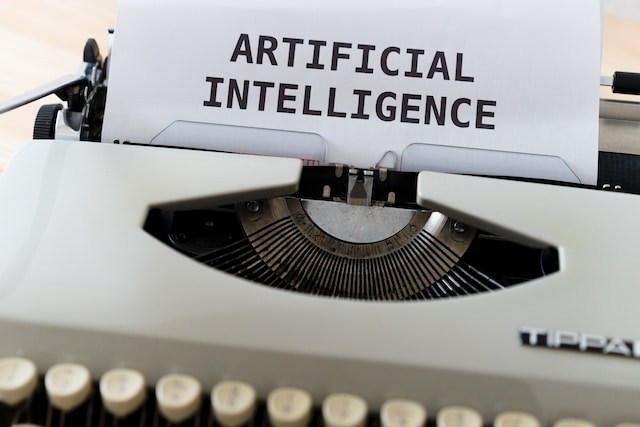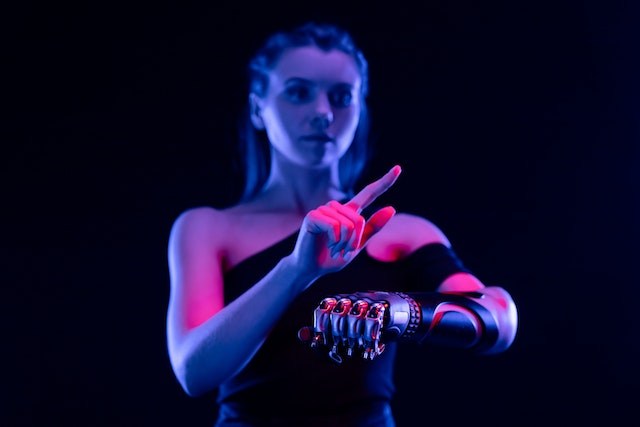AI (artificial intelligence) is revolutionizing the field of Parkinson's disease rehabilitation. Its potential to assist patients in managing their symptoms and improving their quality of life is astounding. By leveraging advanced algorithms and machine learning, AI can analyze medical data, track patient progress, and provide personalized treatment plans. This technology has the ability to detect changes in symptoms, adjust therapies accordingly, and even predict disease progression.
Furthermore, AI tools can support physical and cognitive exercises, enhancing motor skills, speech, and cognitive functions. By harnessing the power of AI, healthcare professionals and Parkinson's patients can work together to optimize rehabilitation outcomes and pave the way for a brighter future in treating this complex neurological disorder.
Understanding Parkinson's Disease
Parkinson's Disease is a neurodegenerative disorder that affects the movement and control of the body. It is characterized by symptoms such as tremors, stiffness, slowed movements, and difficulty with balance and coordination. The disease is caused by a loss of dopamine-producing cells in the brain.
While there is currently no cure for Parkinson's Disease, advancements in technology and the field of artificial intelligence (AI) have revolutionized treatment and rehabilitation methods. AI is being used to develop innovative solutions that improve the quality of life for patients.

One such application of AI in Parkinson's Disease rehabilitation is the use of wearable devices. These devices monitor and analyze movement patterns, providing real-time feedback and personalized exercise programs. This helps patients to improve their motor skills and regain control over their movements.
Another area where AI is making a significant impact is in the development of assistive technologies. These technologies use AI algorithms to predict and prevent falls, detect changes in symptoms, and optimize medication dosages. By using AI, healthcare professionals can provide more precise and personalized care to patients.
AI is playing a crucial role in revolutionizing the treatment and recovery of Parkinson's Disease. By harnessing the power of technology, we can improve the lives of patients and empower them to live more fulfilling and independent lives.
→ Innovative Health Strategies: Using AI to Anticipate Disease Outbreaks
The Role of AI in Rehabilitation
AI is revolutionizing the field of rehabilitation, particularly in the treatment and recovery of Parkinson's disease. By harnessing the power of AI, healthcare professionals can provide more personalized and effective care for patients. AI algorithms can analyze large amounts of patient data, allowing for early detection of symptoms and the development of targeted treatment plans. AI-powered devices and tools enhance rehabilitation exercises by providing real-time feedback and monitoring progress.
This technology enables patients to engage in home-based rehabilitation programs, increasing accessibility and convenience. AI also plays a crucial role in predicting disease progression and evaluating the effectiveness of interventions. As we continue to advance in AI technology, the potential for transforming rehabilitation outcomes is immense.

"AI has the potential to revolutionize rehabilitation by providing personalized care and improving treatment outcomes for Parkinson's disease patients."
→ Harnessing AI for Predicting Cardiovascular Disease Risk
Benefits of AI in Parkinson's Disease Rehabilitation
Parkinson's disease is a neurodegenerative disorder that affects millions of people worldwide. It can cause various motor and non-motor symptoms, impacting a person's quality of life. Advancements in technology, specifically artificial intelligence (AI), are revolutionizing the field of Parkinson's disease rehabilitation.
One of the significant benefits of AI in Parkinson's disease rehabilitation is the ability to personalize treatment plans. AI algorithms can analyze large amounts of patient data and identify patterns, allowing healthcare professionals to tailor therapies to individual needs. This personalized approach leads to more effective and efficient rehabilitation, ultimately improving patients' outcomes.
AI can also assist in early detection and monitoring of Parkinson's disease progression. By analyzing data from wearable devices, such as smartwatches, AI algorithms can detect subtle changes in movement patterns and alert healthcare providers. Early detection enables timely interventions and better management of symptoms.
Furthermore, AI-powered robotics and virtual reality technologies are enhancing physical therapy sessions for Parkinson's patients. These technologies provide interactive and engaging exercises, making rehabilitation more enjoyable and motivating. AI algorithms can provide real-time feedback during therapy sessions, helping patients correct their movements and optimize their recovery.
AI is transforming Parkinson's disease rehabilitation by personalizing treatment plans, aiding in early detection, and enhancing therapy sessions. With continued advancements, AI has the potential to significantly improve the lives of individuals living with Parkinson's disease.
Practical Applications of AI in Rehabilitation
The use of Artificial Intelligence (AI) in rehabilitation has transformed the treatment and recovery processes for various medical conditions, including Parkinson's disease. AI technologies offer innovative solutions that enhance patient care and improve outcomes.
AI-Assisted Diagnosis and Monitoring
AI algorithms can analyze patient data, such as medical records, imaging scans, and sensor data, to assist in the diagnosis of Parkinson's disease. Machine learning models can identify patterns and markers that aid in early detection and accurate diagnosis. AI-powered wearable devices and sensors can continuously monitor patients' movements, allowing for real-time tracking and evaluation of symptoms.
Personalized Treatment Plans
AI algorithms can analyze a vast amount of patient data to create personalized treatment plans for individuals with Parkinson's disease. By considering various factors such as disease progression, medical history, and lifestyle, AI can optimize treatment strategies to suit each patient's specific needs. This personalized approach ensures better treatment outcomes and improves the overall quality of care.
Virtual Rehabilitation
Virtual reality (VR) and augmented reality (AR) technologies, driven by AI, have revolutionized rehabilitation practices. These immersive experiences provide patients with interactive and engaging environments to perform therapeutic exercises. AI algorithms can adapt the difficulty level and customize the exercises based on the patient's progress, ensuring optimal rehabilitation.
Predictive Analytics and Early Intervention
AI algorithms can analyze patient data and predict disease progression, enabling early intervention and preventive measures. By monitoring changes in symptoms and tracking biomarkers, AI systems can alert healthcare professionals to potential complications or deterioration in patients' conditions. This proactive approach allows for timely interventions, reducing the risk of complications and improving patient outcomes.
AI in Parkinson's disease rehabilitation has the potential to transform the way we approach treatment and recovery. With early diagnosis, personalized treatment plans, virtual rehabilitation, and predictive analytics, AI technologies offer promising solutions to enhance patient care and improve long-term outcomes.
💡 Tip: Using AI in rehabilitation for Parkinson's Disease can greatly improve treatment and recovery by analyzing patient data, predicting symptoms, and personalizing therapy plans.
Challenges and Limitations of AI in Rehabilitation
Rehabilitation plays a crucial role in the treatment and recovery of individuals with Parkinson's disease. With advancements in technology, artificial intelligence (AI) has emerged as a potential tool to revolutionize the field of Parkinson's disease rehabilitation. There are several challenges and limitations that need to be addressed.
- Lack of Personalization: AI systems may struggle to provide personalized rehabilitation programs that cater to the unique needs of each individual with Parkinson's disease. Customization is essential in ensuring effective and targeted treatment.
- Reliance on Data: AI algorithms require large amounts of accurate and diverse data to function optimally. Limited availability of high-quality data can hinder the development and implementation of AI systems in rehabilitation settings.
- Ethical Considerations: The use of AI in rehabilitation raises ethical concerns regarding privacy, consent, and potential biases within the algorithms. It is important to strike a balance between leveraging AI technology and ensuring patient safety and autonomy.
- Human Interaction: While AI can offer valuable insights and support, it cannot replace the human touch in rehabilitation. The role of healthcare professionals and the therapeutic relationship they establish with patients should not be overlooked.
- Cost and Accessibility: Implementing AI technology in rehabilitation settings can be expensive, making it inaccessible to certain populations or healthcare facilities with limited resources. It is crucial to address these cost barriers to ensure equitable access to AI-driven rehabilitation.
Overcoming these challenges and limitations is essential to fully harness the potential of AI in Parkinson's disease rehabilitation. By acknowledging these issues and working towards solutions, we can pave the way for a future where AI complements and enhances the effectiveness of rehabilitation treatments, ultimately improving the lives of individuals with Parkinson's disease.
Future of AI in Parkinson's Disease Rehabilitation
The Future of AI in Parkinson's Disease Rehabilitation
AI has the potential to revolutionize treatment and recovery for individuals with Parkinson's disease. By leveraging advanced technology and machine learning algorithms, AI can significantly improve the quality of life for patients.
One area where AI shows great promise is in the early detection and diagnosis of Parkinson's disease. Machine learning algorithms can analyze vast amounts of patient data, including medical records, genetic information, and symptom patterns, to identify early indicators of the disease. This can lead to earlier interventions and more effective treatment options.
AI can also be used to develop personalized treatment plans for Parkinson's patients. By analyzing patient data, AI algorithms can identify specific symptoms and tailor rehabilitation programs to address individual needs. This individualized approach can lead to better outcomes and improved quality of life for patients.
In addition to personalized treatment plans, AI can also assist in monitoring and tracking the progress of Parkinson's patients. Wearable devices equipped with AI technology can collect real-time data on motor function, medication adherence, and symptom fluctuations. This data can help healthcare professionals make more informed decisions about treatment adjustments and provide timely interventions.
The future of AI in Parkinson's disease rehabilitation holds great promise. With continued advancements in technology and research, AI has the potential to transform the way we diagnose, treat, and manage this complex neurological disorder. By harnessing the power of AI, we can improve outcomes and enhance the lives of individuals living with Parkinson's disease.
In light of this information
In conclusion, AI is revolutionizing Parkinson's Disease rehabilitation by offering personalized and effective treatment options for patients. With its ability to analyze vast amounts of data, AI enables healthcare professionals to make informed decisions, tailor interventions, and monitor progress more accurately. The integration of AI technologies, such as virtual reality and machine learning, holds immense potential in improving the lives of Parkinson's patients and enhancing their recovery journey.
As research and development in this field continue to progress, we can expect even more innovative solutions to emerge, bringing hope and improved outcomes for those living with Parkinson's Disease.
Key Takeaways
- AI is transforming Parkinson's Disease rehabilitation, offering personalized treatment options for patients.
- Virtual reality and machine learning algorithms are key AI-powered technologies used in Parkinson's rehabilitation.
- AI enables healthcare professionals to make informed decisions, tailor interventions, and monitor progress more accurately.
- The integration of AI in rehabilitation holds immense potential in improving the lives of Parkinson's patients.
- Continued research and development in this field will lead to even more innovative solutions for Parkinson's care.
Frequently Asked Questions
How does AI improve Parkinson's Disease rehabilitation?
AI improves Parkinson's Disease rehabilitation by offering personalized treatment plans, monitoring progress, and aiding in early diagnosis through data analysis.
What are the practical applications of AI in Parkinson's rehabilitation?
Practical applications of AI in Parkinson's rehabilitation include virtual reality therapy, AI-driven robotics, and machine learning algorithms for personalized care plans.
Are there any limitations to using AI in Parkinson's rehabilitation?
While AI offers significant benefits, there are challenges such as data privacy concerns, limited accessibility, and the need for human expertise in interpreting AI-driven results.
What does the future hold for AI in Parkinson's Disease rehabilitation?
The future of AI in Parkinson's Disease rehabilitation looks promising, with ongoing research and development aiming to improve treatment outcomes and enhance patient care.
Can AI help reduce healthcare costs in Parkinson's rehabilitation?
Yes, AI has the potential to reduce healthcare costs in Parkinson's rehabilitation by optimizing treatment plans, improving efficiency, and enabling remote monitoring and care.
